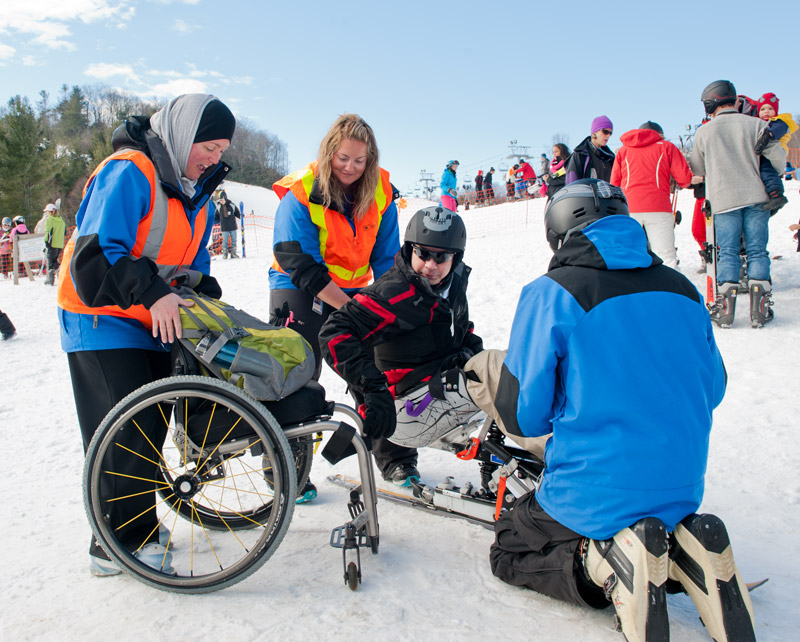- Academic Programs & Support
- Departments, Schools & Colleges
- College Of Health & Human Sciences
- School of Health Sciences
- Recreational Therapy Program
Recreational Therapy Program
What is Recreational Therapy?
Recreational therapy, also known as therapeutic recreation, is a systematic process that utilizes recreation and other activity-based interventions to address the assessed needs of individuals with illnesses and/or disabling conditions, as a means to psychological and physical health, recovery and well-being. Further, "Recreational Therapy” means a treatment service designed to restore, remediate and rehabilitate a person’s level of functioning and independence in life activities, to promote health and wellness as well as reduce or eliminate the activity limitations and restrictions to participation in life situations caused by an illness or disabling condition. (Taken from the American Therapeutic Recreation Association webpage)
Read more about Recreational Therapy treatment
Recreational Therapy at WCU
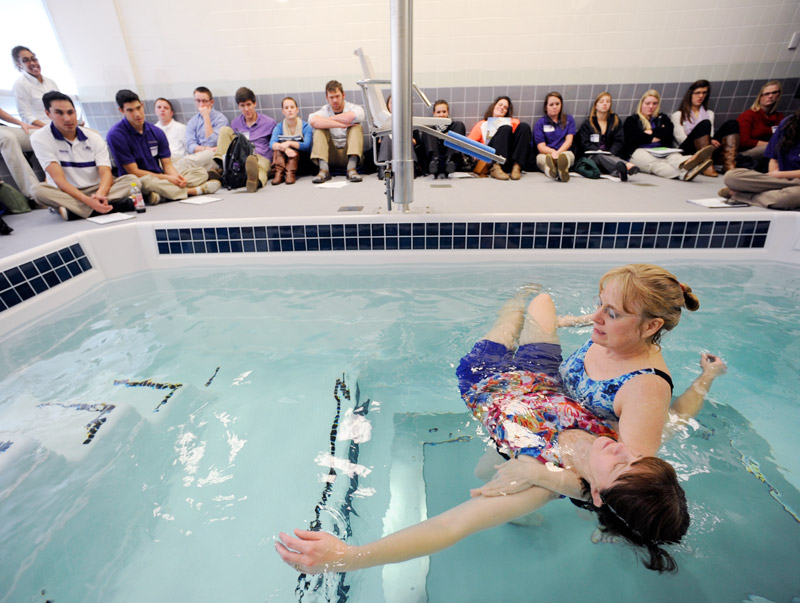
WCU was the first university in the country to offer an accredited Bachelor of Science (B.S.) degree specifically in recreational therapy. Join our groundbreaking program and get started on a rewarding career in recreational therapy.
The goal of the Recreational Therapy Program is “To prepare competent entry-level recreational therapists in the cognitive (knowledge), psychomotor (skills), and affective (behavior) learning domains.” You’ll learn from primary faculty members who are all certified and licensed recreational therapists with many years' experience as healthcare professionals, consultants, and educators. Our support faculty are experts in their respective fields—human anatomy and physiology, counseling, psychology, pharmacology, medical sciences, child development, and family relations.
The faculty in the WCU Recreational Therapy strive for excellence in RT education. You will learn from faculty members who are all certified and licensed with many years of experience as healthcare professionals and educators who remain active regionally and nationally in healthcare organizations and professional associations.
Our Vision: To be leaders in innovative, progressive recreational therapy education that positively impacts the lives of people with disabilities through the use of recreational therapy.
Our Mission: The mission of the Recreational Therapy Program is to cultivate students who have the knowledge, skills and abilities to become exceptional recreational therapy practitioners.
The Recreational Therapy, B.S. degree is based on a cohort model. Students enter as pre-majors, and are encouraged to apply to the Program during the fall of their sophomore year. Requirements for coursework, GPA, gaining experience working with individuals with disabilities, and involvement in the student Recreational Therapy Association are outlined in the admission requirements. Steps to get involved can be found in the Major Map.
Western Carolina University boasts the first Recreational Therapy education program to be accredited through the Commission on Accreditation of Allied Health Education Programs (CAAHEP) through the Committee on Accreditation of Recreational Therapy Education (CARTE). As a CARTE accredited program, one of our responsibilities is to provide information regarding our Program Outcomes on our website.
Certification Exam Passage Rates
The National Council for Therapeutic Recreation Certification oversees application and testing processes for the Certified Therapeutic Recreation Specialist exam. There are over 16,000 certificants internationally, with most of those in North America. Students from the WCU Recreational Therapy Program meet all eligibility requirements to sit for this exam upon satisfactory completion of the major program of study. The Program includes a 15 week, 600 hour exam with a credentialed recreational therapist. From 2021-2022, 97.1% of first-time test takers from the WCU RT Program passed the exam, compared to 84.5% nationally. In 2023, 87.5% of the first-time test takers passed the exam on their first attempt.
Clinical Performance Appraisal
Upon completion of the internship, credentialed supervisors rate student interns on their clinical competency for Recreational Therapy practice. In academic year 2021-2022, 28 interns were evaluated. The average score on the Clinical Performance Appraisal Summary was 4.36/5.0 – above expectations. All students achieved expectations and met eligibility for national certification and state licensure. We did not have any students who were deemed average or below expectations in clinical performance, and continually receive positive feedback from our clinical supervisors on the readiness of our students.
Requirements for coursework, GPA, gaining experience working with individuals with
disabilities, and involvement in the student Recreational Therapy Association are
outlined in the admission requirements.
Understand the requirements for admission to the Recreational Therapy Major
Access the Admission Application for the Recreational Therapy Major
The Recreational Therapy Program celebrates its students each spring in an Awards Ceremony. Students may be eligible for two prestigious awards and two scholarships. Awards are voted on by the full-time faculty. Students may apply for scholarships, including these two, before February 1st each year. More information on the Leadership in Service and Excellence in Scholarship awards, and the Karen Styles and Edith Moore Hall and David McKee Hall Sr. scholarships, can be found on the document linked below.
RT Student Scholarships and Awards
In addition to the Program and University awards and scholarships, WCU Recreational Therapy majors have the opportunity to apply to several professional scholarships. There are three conference-related scholarship at the state, regional, and national level each year. Students compete for an opportunity to gain professional conference experience and in turn are financially supported by the conference organization to attend the conference. Information about the North Carolina Recreational Therapy Association, Southeast Recreational Therapy Symposium, and American Therapeutic Recreation Association student scholarships can be found on the following document.
Recreational Therapy students complete a clinical internship during the spring semester of their senior year. At Western Carolina University we ensure the internship sites are vetted to provide students with the requirements necessary to meet the recreational therapy national credentialing standards and North Carolina licensing standards. We have over 70 different agencies to which students can apply for internship around the country. We have agreements with agencies who serve in behavioral health, physical rehabilitation, older adults, intellectual and developmental disabilities, veterans, and community-based treatment. The agencies can be in acute care, long-term care, community-based settings, and residential settings. Students spend the full semester on internship – 15 weeks and 600 hours – with a credentialed recreational therapist.
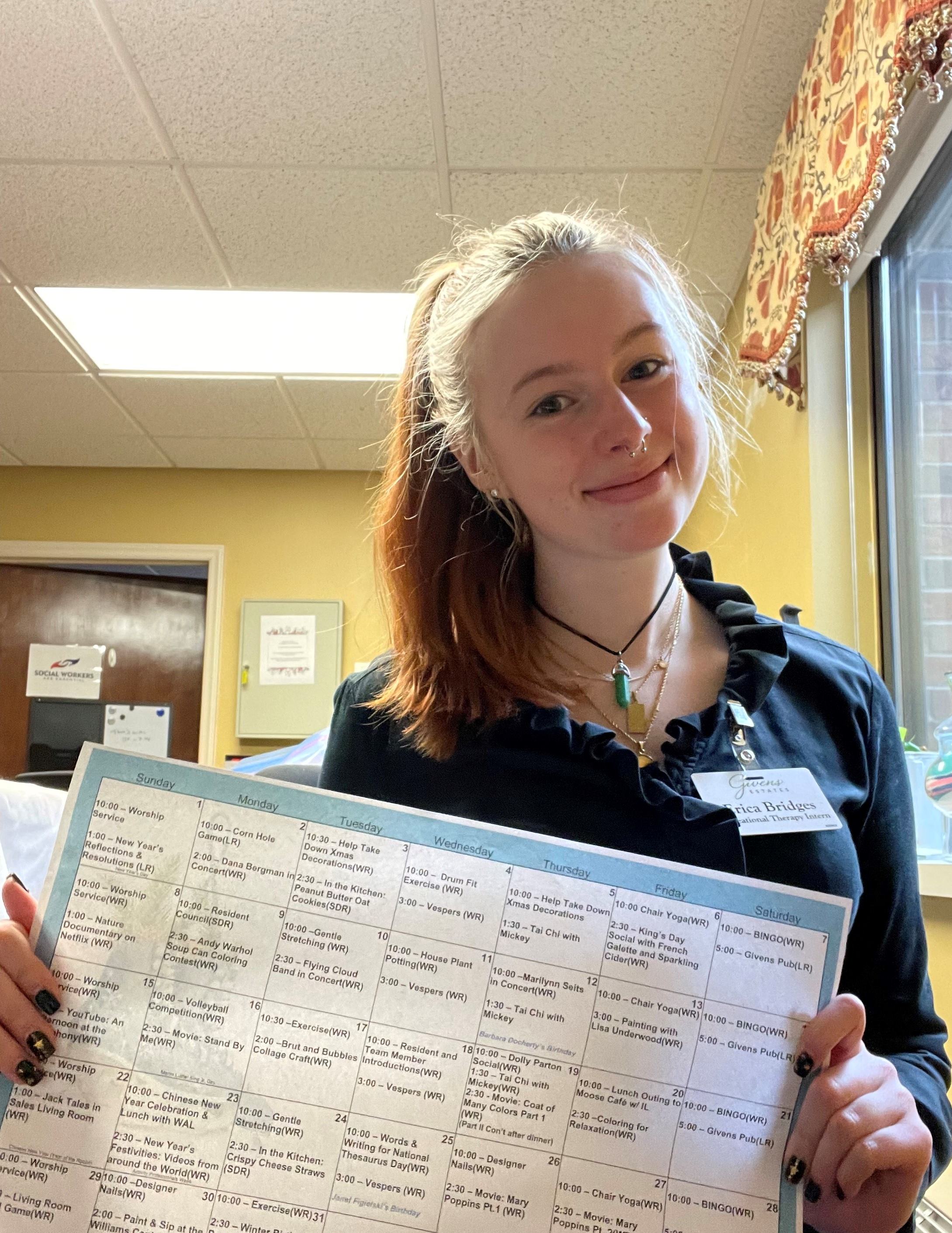
Erica Bridges - Givens Estates Retirement Community
Erica Bridges
Givens Estates Retirement Community, Asheville, NC
During my recreational therapy internship, I worked with older adults who required skilled nursing support in the Health Center. Givens Estates is a continuing care community that offers independent and assisted living services in addition to the Health Center. I worked with residents in the late stages of life who needed more support. My favorite part of this internship was the ability to connect with people who are nearing the end of their life; it was difficult yet fulfilling for me as I believe it is an honor to make an impact on someone in their last days and help them make the most of the life they have left. Many people are intimidated by individuals with late-stage dementia, and it gives me great joy to be someone who can meet these people where they are without judgment or fear and truly make a difference in their lives.
Learn more about this agency: https://givensestates.org/
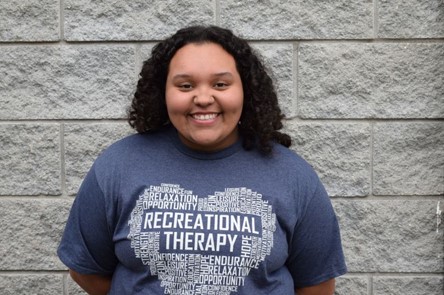
Chelsey Scruggs - Hillside, Inc.
Chelsey Scruggs
Hillside, Inc., Atlanta, GA
I completed my recreational therapy internship at Hillside. Hillside is a behavioral health facility that serves youth ages 11-17 with conditions such as impulsivity, emotional dysregulation, anxiety, depression, self-harm, and suicidality. Hillside offers a long-term residential program, day program, and virtual intensive outpatient therapy.
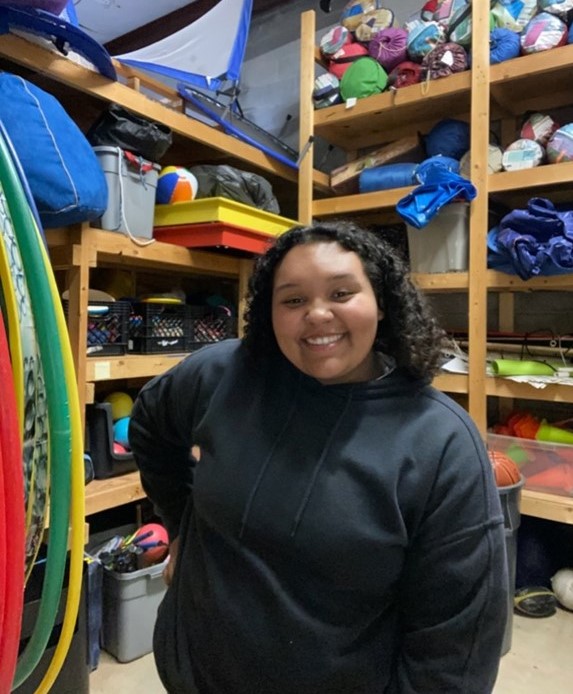
The Recreation Therapy department provides physical activities in a full-size gym, horticulture therapy, art, leisure education clubs, social emotional learning classes, and seasonal aquatic therapy. What I loved most about my internship was getting to engage the clients in activities that they enjoyed while also teaching them new skills that they could use outside of treatment.
Learn more about this agency: https://hside.org/
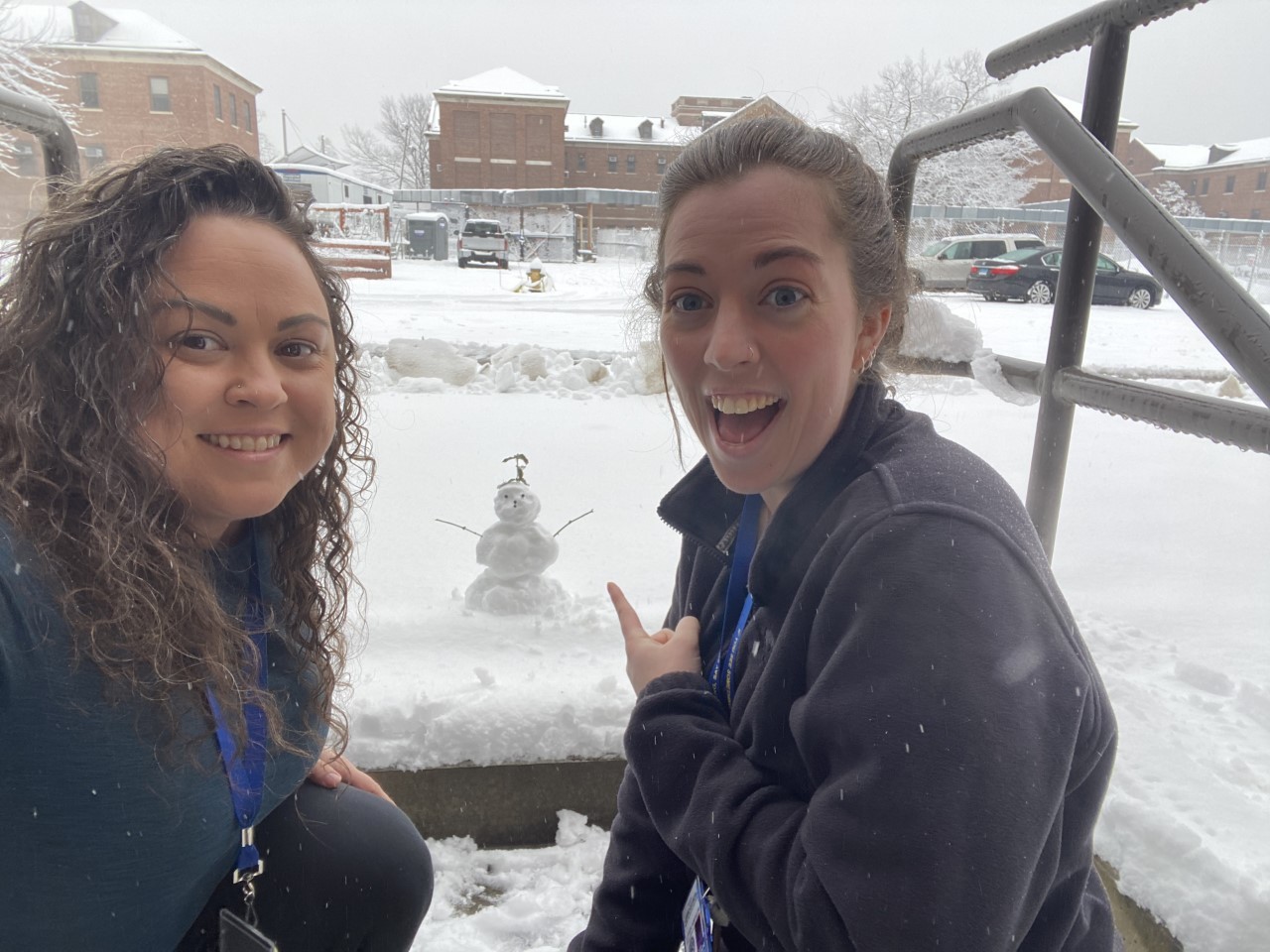
Autumn Kelly and Megan Robey - Hudson Valley Veterans Affairs Medical Center
Autumn Kelly and Megan Robey
Hudson Valley Veterans Affairs Medical Center, Hudson Valley, NY
We completed our internship at the Hudson Valley VA, which is located an hour north of NYC. This specific facility focuses on behavioral health and long term care for Veterans. The units we observed and worked include Acute Inpatient Psychiatric, PTSD Recovery Treatment Program, Substance Abuse Treatment Program, Domiciliary Rehabilitation Program, Psychosocial Rehabilitation Recovery Center, and Community Living Center, which houses long-term care residents experiencing diagnoses including Dementia, Alzheimer's, and co-occurring psychiatric diagnoses.
We learned from a large team of Certified Therapeutic Recreation Specialists, Recreational Therapy Assistants, Music Therapists and Art Therapists. This gave us a unique opportunity to see several different therapies and styles of interaction. Some interventions we facilitated included virtual reality, HeartMath [must be certified], leisure education, leisure planning, anger management, money management, community integration, reminiscence, sensory, movement and intramural sports. This internship built our confidence to become well-rounded recreational therapists. We feel prepared to help others optimize their quality of life and take on what life has to offer.
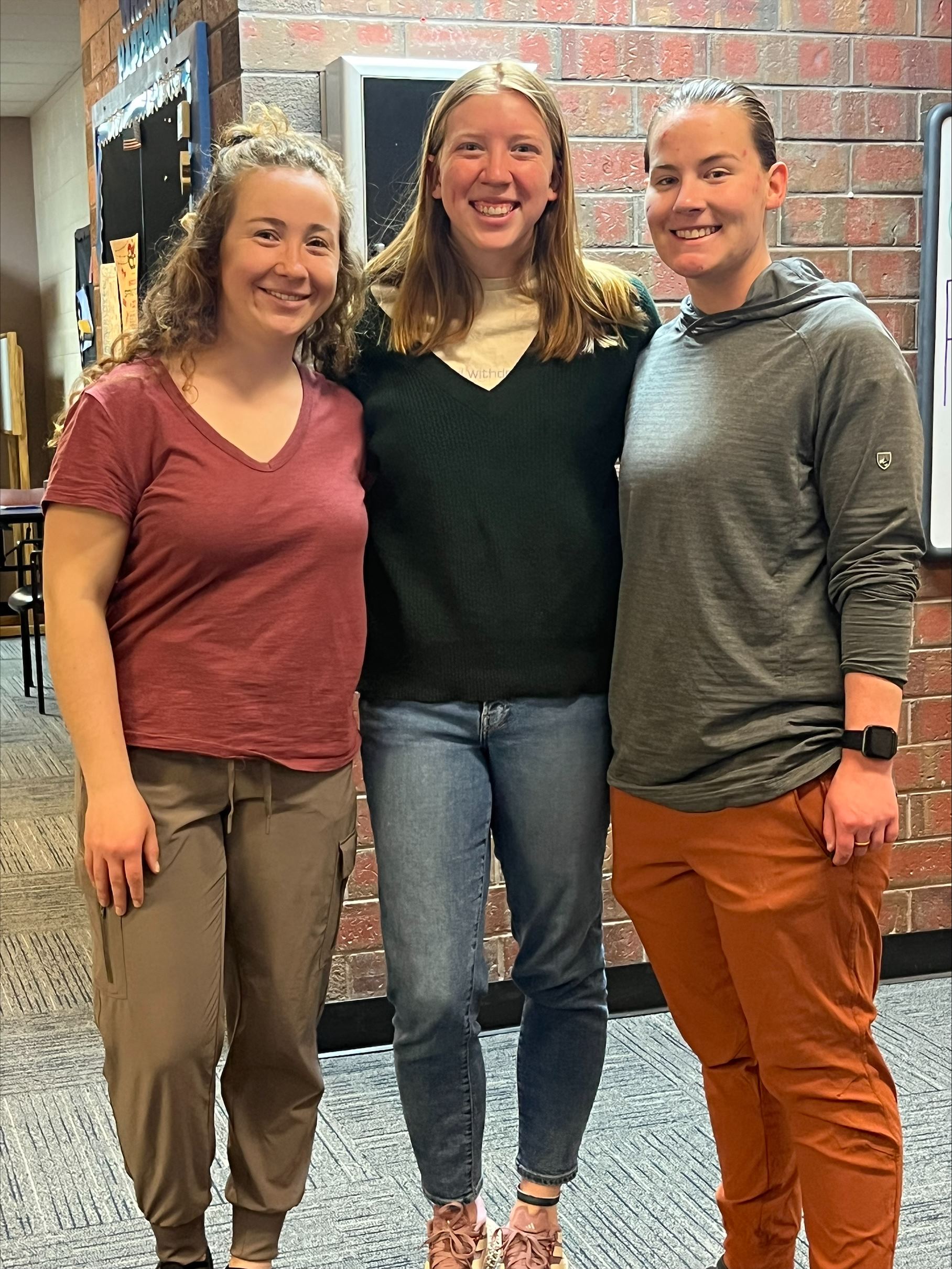
Courtney Bridges, Nicole Stauffer, and Sasha Taylor - King Adult Day Enrichment Program
Courtney Bridges, Nicole Stauffer, and Sasha Taylor
King Adult Day Enrichment Program, Westminster, CO
Our internship at King Adult Day Enrichment Program gave us the opportunity to work with individuals with multiple sclerosis, brain injuries, and other neurological conditions. Each day we shared vital information in staff meetings that focused on what the team could do to help participants meet their individual goals. The groups we led every day also targeted individuals’ goals, increasing their wellness and quality of life. Some of the best parts about our internship were community integration outings. We took participants shopping, to a museum, an arcade, and an adaptive skiing program – all focusing on increasing independence. We enjoyed our time at this facility, and in Colorado! We feel prepared and energized to join the recreational therapy profession with the completion of this internship.
Learn more about this agency: https://mscenter.org/kadep/
Careers in Recreational Therapy
Western Carolina University recreational therapy undergraduates are eagerly sought by clinical agencies desiring their services as interns and by employers seeking additions to their staff. Graduates of our Program are employed by hospitals and treatment centers throughout the region and across the nation.
Who employs recreational therapists?
According to the most recent data from the National Council for Therapeutic Recreation Certification, most recreational therapists are working in behavioral healthcare (37%), with older
adults (29%), in physical medicine and rehabilitation (20%), and with individuals
with developmental disabilities (14%). The types of facilities that recreational
therapists work in vary widely, but may include:
- Hospitals (of many types, including psychiatric hospitals and physical medicine)
- Skilled nursing, assisted living, and adult day programs
- Residential and transitional facilities
- Outpatient or day treatment programs
- Community parks and recreation
- Correctional facilities
- Public schools
- Wilderness treatment programs
For more information on careers in recreational therapy, consult the program director or visit WCU’s Center for Career and Professional Development for additional resources.

